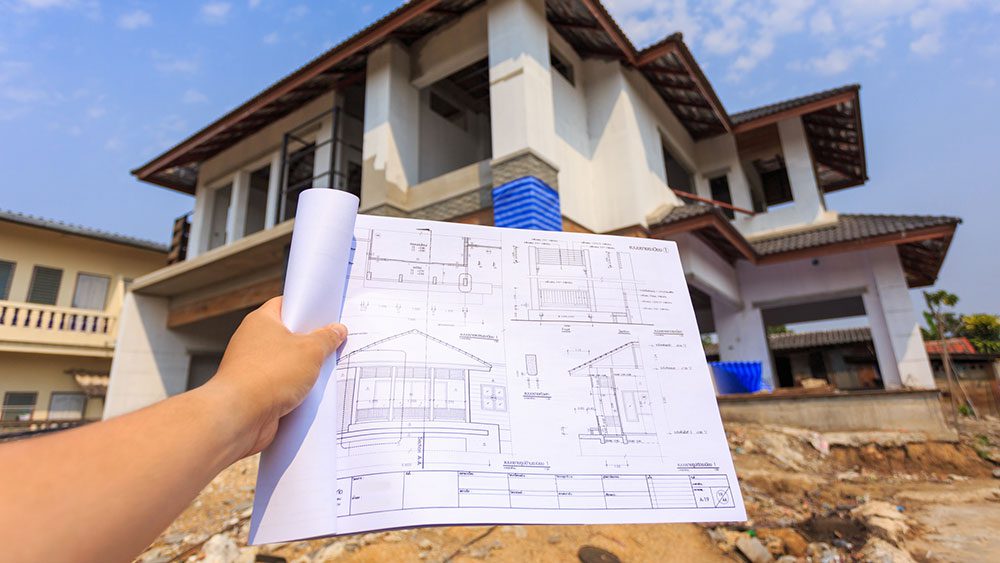The leap from renting to becoming a homeowner is undoubtedly exciting yet challenging, especially for first-time buyers. This comprehensive guide sheds light on going from a renter to a first-time homeowner.
Taking the Leap from Renter to Owner
Transitioning from a tenant to an owner is a significant milestone. It allows for an opportunity to transform what may seem like “wasted” rent payments into mortgage payments contributing towards something tangible: your home equity.
Deciding to become a homeowner calls for careful thought and planning. This planning involves envisioning long-term goals and how homeownership aligns with them. Understanding your motivations can significantly streamline the homebuying process, whether just for having a secure place to live, an investment for the future, or achieving the independence symbolized by homeownership.
Do a Financial Checkup
Performing a detailed financial checkup is vital before setting out on the journey to homeownership. This process involves understanding one’s financial condition: savings, expenses, ongoing income, and credit score. The credit score determines the ability to qualify for home loans and the terms thereof. The financial checkup hones in on the capacity to live within one’s means, save money, and fulfill all monthly monetary obligations, including loan repayments and daily expenses.
First-time homebuyers should consider starting with an emergency savings account with three to six months of living expenses. This approach takes precedence over house-buying preparations due to the significant upfront costs associated with homeownership, such as the down payment and closing costs.
Keeping savings in an accessible and relatively safe vehicle that still generates a return is one of the major challenges. Purchasing short-term bonds or fixed-income portfolios can benefit those with one to three years to realize their goal. For those with a shorter timeframe, like six months to a year, a high-yield savings account insured by the Federal Deposit Insurance Corporation (FDIC) would be the best option.
Understanding Your Capacity: How Much House You Can Afford
Understanding the debt-to-income (DTI) ratio is crucial to comprehend how much house you can afford. The DTI ratio is a metric lenders use to compare a person’s total debt to their total income. To calculate this ratio, add recurring monthly expenses such as rent and minimum credit card payments. Next, divide the total monthly debts by the total pre-tax monthly income. For example, if the total income is $5,000 and the recurring expenses are $2,000, the DTI ratio is 40%. Lenders ideally prefer a DTI ratio of less than 50%.
After calculating the DTI ratio, it is essential to consider all the components that come into play when calculating the monthly mortgage payment. This calculation includes the principal, interest, insurance, property taxes (commonly referred to as PITI), the down payment, private mortgage insurance (PMI), and home maintenance.
Understanding your financial capacity can help narrow your house hunt to properties within your budget. It can also assist your real estate agent in identifying suitable properties.
Getting a Mortgage
Here are some essential tips on getting a mortgage, including how to secure a mortgage pre-approval.
Tips on How to Choose a Mortgage Lender
Choosing the right mortgage lender is crucial in the homebuying journey. It’s advisable not to be bound by loyalty to your current financial institution. Shopping around can reveal differing fees and terms, even if you only qualify for one type of loan. Here are some tips to help you navigate this choice:
- Consider Different Types of Lenders: Lenders come in all shapes and sizes – credit unions, banks, mortgage brokers, and online lenders. Each type has pros and cons, but the more options you compare, the better.
- Understand the Rates and Terms: Understanding the loan terms and the interest rate you’ll be charged is crucial. A lower rate can save you thousands of dollars over the term of your loan.
- Check Reviews and Reputation: Look at reviews online and ask for prospective lender references. Also, consult with professionals like real estate agents or financial advisors.
- Look for Transparency: Good lenders will be upfront about the loan terms, associated fees, and your monthly mortgage payment.
- Consider the Speed of Approval and Flexibility: How quickly a lender can approve your loan and its flexibility in terms of conditions may determine whether you’ll be able to purchase your dream house in a competitive market.
Remember, before choosing a mortgage lender, you should ensure that you are comfortable with them, can trust them, and that their loan product fits your needs. The costs of switching lenders or getting out of contracts later can be high, so spend ample time making the right decision.
Securing Mortgage Pre-Approval
Securing a pre-approval mortgage is vital to ascertain your creditworthiness and the loan amount you are eligible for. Unlike pre-qualification, which is a rough estimation of how much a lender may be willing to lend, pre-approval is a more defined and reliable measure. The lender will verify your financial information, such as credit scores and employment information, and calculate the debt-to-income (DTI) ratio.
Here’s how to secure mortgage pre-approval:
- Submit a Mortgage Application: The lender will require a completed mortgage application detailing personal and financial information.
- Credit Check: Your lender will check your credit rating to ensure you meet the minimum requirement.
- Provide Documents: You must submit financial documents like pay stubs, tax returns, and bank statements.
- Wait for a Pre-Approval Letter: Once approved, the lender will issue a pre-approval letter stating the loan amount you’re approved for.
Remember, mortgage pre-approval doesn’t guarantee the final loan, as your loan can fall through at the last minute if you do something to alter your credit score, like a significant purchase. Therefore, maintain your financial status quo until the deal is closed.
In a hot real estate market, mortgage pre-approval can give an individual an edge over other potential buyers who may not be as far along.
Find a Trustworthy Real Estate Agent
Planning for your first home can be an exciting yet overwhelming experience. This section has suggested guidelines for finding a real estate agent that is right for you.
Essential Questions to Ask Potential Realtors
Choosing a competent and trustworthy real estate agent is vital to a successful and less stressful homebuying experience. Here are some key questions you should ask when interviewing potential Realtors:
- How long have you been a real estate agent? While experience isn’t everything, dealing with contracts and smooth negotiation often comes with time.
- Are you familiar with the area(s) I’m interested in? An agent who truly knows the area can provide valuable insights and possible drawbacks that can influence your decision.
- How will you communicate with me, and how often? Clear, frequent communication is crucial, especially for first-time buyers.
- What is your availability? This becomes especially critical when houses are quickly bought and sold in a hot market.
- Can you provide references from previous clients? Real-life experiences from others can give you a better sense of the agent’s customer service and reliability.
Role of a Real Estate Agent in Your Home Purchase Journey
In the homebuying journey, a real estate agent is a trusted guide, negotiator, and intermediary between you and potential sellers. Their expertise and experience can traverse the often challenging terrains of homebuying, providing a smoother and more transparent experience. Here are some main roles they play:
- Property Searching: Agents can help locate properties that meet your requirements and fit within your budget. They utilize their local knowledge and access to databases to provide listings relevant to your preferences.
- Price Negotiation: Skilled real estate agents have the negotiation expertise to get the best purchase price for your home based on comparable properties, market trends, and a seller’s situation.
- Liaising: They liaise with all parties involved in the transaction, including mortgage lenders, inspectors, appraisers, and attorneys, to ensure a smooth process.
- Paperwork and Legalities: From preparing the offer to closing the deal, the agent collaborates with legal professionals to ensure the contracts are up to fair standards. They will ensure all disclosures are made and conditions are met.
- Advocacy: One of the most vital aspects of their role is that they represent your interest throughout the whole process. They are your advocate and provide the needed buffer between the parties involved.
While hiring a real estate agent is not a legal requirement, their expertise can streamline your search, negotiation, and transaction paperwork, ensuring you remain within your budget.
Narrowing Down Your House Search
This section provides suggestions for finding a home that meets your needs.
Prioritizing Your Needs For Your First House
Deciding what you want and need in your first house and what is negotiable is vital in your homebuying journey. The list should span from primary needs like size and location to smaller details like the bathroom and kitchen layout. Here are some points to help prioritize your needs for your first house:
- Determine Your Non-Negotiables: These are elements that a house must have for it to be considered. It could be the number of bedrooms, a selected neighborhood, or specific amenities.
- Identify Your Desirables: These are not mandatory features but would be great to have, such as a swimming pool or a home office space.
- Consider Future Requirements: Think about what your life could look like 5 to 10 years later. Are you planning for children or expecting an elderly family member to move in with you? These factors can significantly impact the type of house you should buy.
- Think Long-term: What is the resale value of the house? Look for a home to which you can add value, ensuring a boost in equity to help you move up the property ladder if needed.
- Lifestyle Needs: Do you work from home or need a large yard for pets? Such lifestyle choices play a significant role in deciding what kind of house you need.
Remember, while home preferences are pivotal, making exceptions for minor imperfections that are easier to modify can help first-time homebuyers land a better deal and add personal value over time.
Important Things to Look for and Ignore During House Hunting
During house hunting, it’s crucial to distinguish between cosmetic details, which can be altered relatively quickly, and fundamentals that are costly or impossible to change. Here are some aspects deemed important to look for and what can potentially be ignored:
Essential Things to Look for:
- Location: This is something you can’t change about a property. Check for proximity to amenities, ease of transportation, neighborhood safety, school districts, and potential for growth or development.
- Structural Integrity: Consider the condition of the foundation, roof, and exterior walls, as these can be expensive to repair or replace.
- Home Layout: While walls and rooms can be moved or added, doing so can be costly and time-consuming. Ensure the layout serves your lifestyle and needs.
- Energy Efficiency: Is the home well-insulated? Are the windows double-glazed? An energy-efficient home can save you money in the long run.
- Mechanical Systems: Check the condition of the HVAC system, electrical systems, and plumbing.
Things You Can Potentially Ignore:
- Paint and Wallpaper: These cosmetic features are inexpensive and easily changed.
- Furnishing and Décor: Keep in mind that these are personal choices of the current homeowner and can be replaced according to your taste.
- Carpeting and Flooring: While these may seem significant, they’re relatively easy to replace or refinish.
- Landscaping: Gardens and yards can be altered over time to reflect your preferences.
When and How to Make a Convincing Offer
Once you’ve found your ideal home that ticks most boxes on your checklist and lies within your budget, it’s time to make an offer. Doing this at the right time and in the proper manner is crucial.
When to Make an Offer: Begin the process once you have a mortgage pre-approval and are confident about the property after a thorough inspection. You may want to act quickly if the real estate market is competitive.
How to Make the Offer:
- Understanding the Market: Your agent will provide data on how many similar homes have sold in the area. This comparative market analysis (CMA) will help make an informed offer.
- Decide on the Price: Along with your agent, determine a reasonable price that aligns with the home’s value and your budget. It’s okay to start negotiations slightly lower than your maximum budget to allow room for counteroffers.
- Include Contingencies: Contingencies safeguard your interests by stating conditions that must be met for the deal to proceed. These can include a successful home inspection or securing financing.
- Write a Cover Letter: Personalizing your offer with a heartfelt letter to the seller about why you love their home could make your offer stand out, especially in a competitive market.
- Earnest Money: You should include earnest money with your offer, which typically equals 1 – 3% of the home’s purchase price. It’s held in escrow as a good faith deposit, showing you’re serious about the purchase.
Your agent will assist in drafting the offer letter, including all pertinent details, and submitting it to the seller’s representative. Remember, the process might involve several rounds of negotiation, and there may be instances when walking away would be better than jeopardizing your financial health.
Ensuring a Smooth Closing Process
Once your offer is accepted, you move to the final stage of the homebuying process: closing. This involves finalizing the legal paperwork, settling all costs, and taking ownership of the property. Here’s how to ensure a smooth closing process:
- Home Inspection: Have a professional conduct a thorough inspection to ensure no hidden problems. This could allow you to negotiate for repairs or a lower price.
- Title Search and Insurance: A title search verifies that the seller is the rightful owner of the property and there are no liens against it. Title insurance protects you if any issues are discovered after closing.
- Finalize Your Mortgage: With recent inspections and appraisals, finalize your mortgage with your lender. Review and verify all details.
- Review Your Closing Disclosure: This document provides the final terms of your loan and what you owe in closing costs. Review every detail and compare it with your Loan Estimate.
- Walkthrough: Conduct a final walkthrough 24 hours before closing, ensuring any agreed-upon repairs were made and the home’s condition hasn’t changed.
- Sign Papers and Pay Closing Costs: At the closing meeting, bring your ID, cashier’s check, or proof of a wire transfer for your down payment and closing costs. You’ll sign all final documentation under the guidance of a closing agent.
- Take the Keys: You’re officially a homeowner after all papers are signed and payments are made. You’ll receive the keys to your new home.
The sense of achievement that comes with holding the keys to your own home is incomparable, and while the journey can seem complex, a well-prepared strategy can help you navigate it successfully.
Closing Points
Transitioning from a renter to a homeowner is a journey of decisions, planning, and excitement. As a homeowner, you have new responsibilities, from regular maintenance to fostering good neighborly relations. But weaving your personality into every corner of your home, creating a space that resonates with your preferences and necessities, makes it a celebration.
However, remember to review your homeownership plans periodically, making necessary changes to align with life transitions and market trends.
© 2024 xpertRealtyMarketing.



